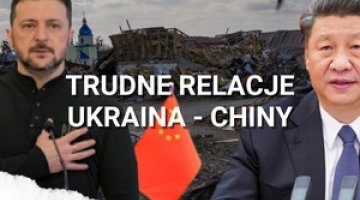Russia’s plan to vassalise Ukraine
On 17 March the Russian Ministry of Foreign Affairs published a document which included Russia’s conditions to end the crisis in Ukraine. Moscow demands: that the agreement of 21 February be immediately implemented, meaning that all radical groups should leave occupied buildings and public spaces and should be disarmed and an investigation should be carried out into acts of violence committed by them; ; to convene the Constituent Assembly which represents all Ukraine’s regions in order to draft a plan of a new constitution. The new constitution should guarantee Ukraine’s status as a federal and neutral state (politically and militarily) which recognises the Russian language – alongside the Ukrainian language – as a state language, allows its regions to freely elect their legislative and executive powers, ensures that a broad autonomy of the regions in the political, economic, financial and cultural areas is respected as well as their autonomy in contacts with other regions abroad, and that ensures that the rights of minority groups are respected and the religious sphere is not interfered with. Under the new constitution, elections for legislative and executive powers at the central and regional levels should be held. Moscow is also demanding that Crimea’s decision about its future be respected and that all the above premises of Ukraine’s political system, sovereignty, territorial integrity and neutral status be guaranteed by Russia, the EU and the US and confirmed by a UN resolution.
Commentary
- Russia’s strategic goal remains to impose political and systemic solutions that would guarantee Russia control over the Ukrainian state and would permanently place Ukraine in the sphere of Russia’s exclusive influence, thus making it impossible for it to integrate with the EU and NATO in the future. A way to achieve these objectives would be above all to federalise Ukraine (granting its regions broad autonomy) and to secure international (including Russian) guarantees of the permanent character of Ukraine’s new political system and neutral status. In this context the annexation of Crimea is to be another element of pressure that is being placed on the government in Kiev in order to persuade it to accept Russian conditions, which would in fact mean agreeing to transform Ukraine into a Russian protectorate.
- Russia has not changed its tactics towards Ukraine. In parallel to annexing Crimea it is continuing its efforts to take over control of other entities in southern-eastern Ukraine. President Putin’s speech in which he announced that Crimea would be incorporated into Russia was a clear signal that Moscow will pursue further measures to destabilise Ukraine. Putin adopted an aggressive tone and accused the government in Kiev of fascism and called on the inhabitants of Ukraine to establish some order in their country suggesting that they could rely on Moscow in this respect. Dmitry Peskov, spokesman to the president, in an interview for BBC on 18 March said that Russia did not intend to use its armed forces in eastern Ukraine. He did, however, add that Russia would protect Russians and Ukrainians living there and would use all legal measures to this end if the government in Kiev neglected to pay due attention to the difficult situation in this part of the country.
- Nevertheless, in annexing Crimea Moscow made a show of power which it hopes will lead to its Western partners exerting pressure on the government in Kiev to attempt to seek agreement with the Kremlin and accept. at least some of Russia’s conditions. Russia’s ultimate goal is for the West to actually accept Russia’s dominance both in Ukraine and in the whole post-Soviet area.





